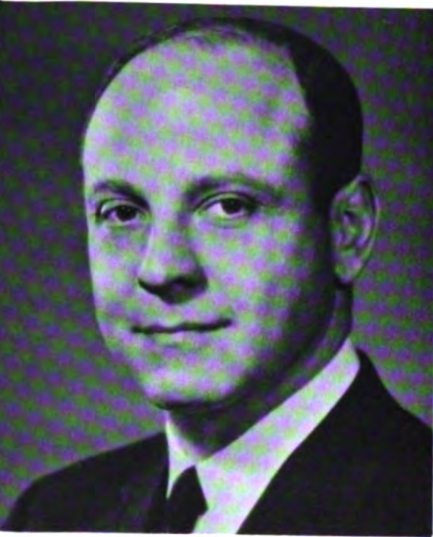
Third Circuit Judge Adams: Courtesy of the Indiana University Law Library, 1980
PARC v. Pennsylvania:
Pioneering the Right to Education for Children with Cognitive Impairments

Third Circuit Judge Adams: Courtesy of the Indiana University Law Library, 1980

District Judge Broderick: Courtesy of the Indiana University Law Library, 1980
On August 12, 1971, PARC v. Pennsylvania was heard by a three judge panel composed of Judge Adams, Broderick, and Masterson.
On this day, the court heard testimony from four expert witnesses and heard argumentation from both the plaintiffs' and defendants' counsel.

Thomas Gilhool, lead plaintiffs' attorney: Courtesy of Public Interest Law Center, October, 1969
PARC's claim that the contested state statutes violated the Equal Protection Clause of the Fourteenth Amendment rested on two main points;
1. "[the statutes] with no rational basis discriminates between persons who are ‘uneducable and untrainable’ and persons who are ‘educable and trainable’ excluding the former from the public schools…and depriving them of their right to education."
2. "Excluding plaintiffs from the public schools conditions their education upon the impermissible criteria of wealth, denying education to those children whose parents are poor." ~ PARC v. Pennsylvania Complaint, January 7, 1971
In rebuttal, the defendants argued that the exclusion of cognitively impaired was legally justified stating;
"A child who is uneducable and untrainable requires treatment different from those children of other classifications. To place the retarded child in the public classroom is to subject such child to frustration since he can not compete mentally with the other children, to subject him to ridicule by other students, to generally disrupt the classroom, albeit not intentionally, and to impose upon the teacher a burden with which he is not trained to cope. There is therefore sound reason for the distinction."
~ PARC v. Pennsylvania 1972, 291

David Kurtzman, Pennsylvania Secretary of Education and named defendant: Courtesy of University of Pittsburgh, 1971
Recognizing the strength of PARC's argument, the defendants expressed the desire to settle by agreement rather than judicial determination. In light of this proceeding, the court suspended further testimony.
During the interim, both parties drafted and agreed to a stipulation and consent agreement.
“The Commonwealth's willingness to settle this dispute reflected an intelligent response to overwhelming evidence against their position."
~Thomas Gilhool, lead PARC attorney, 1973